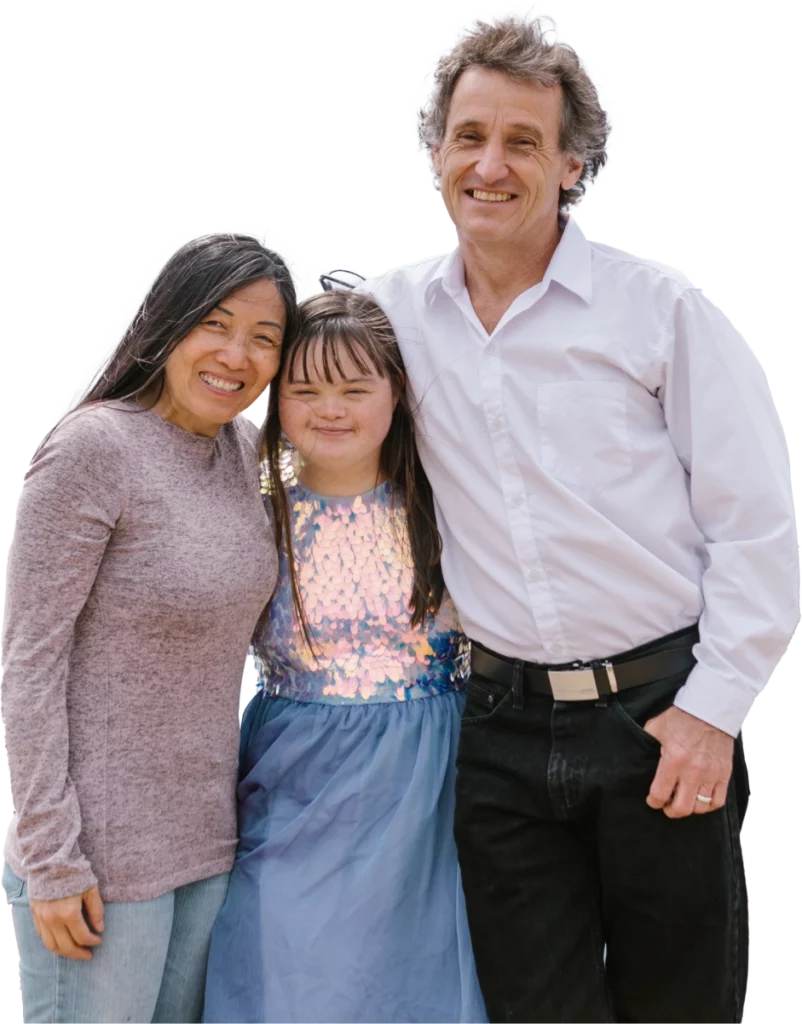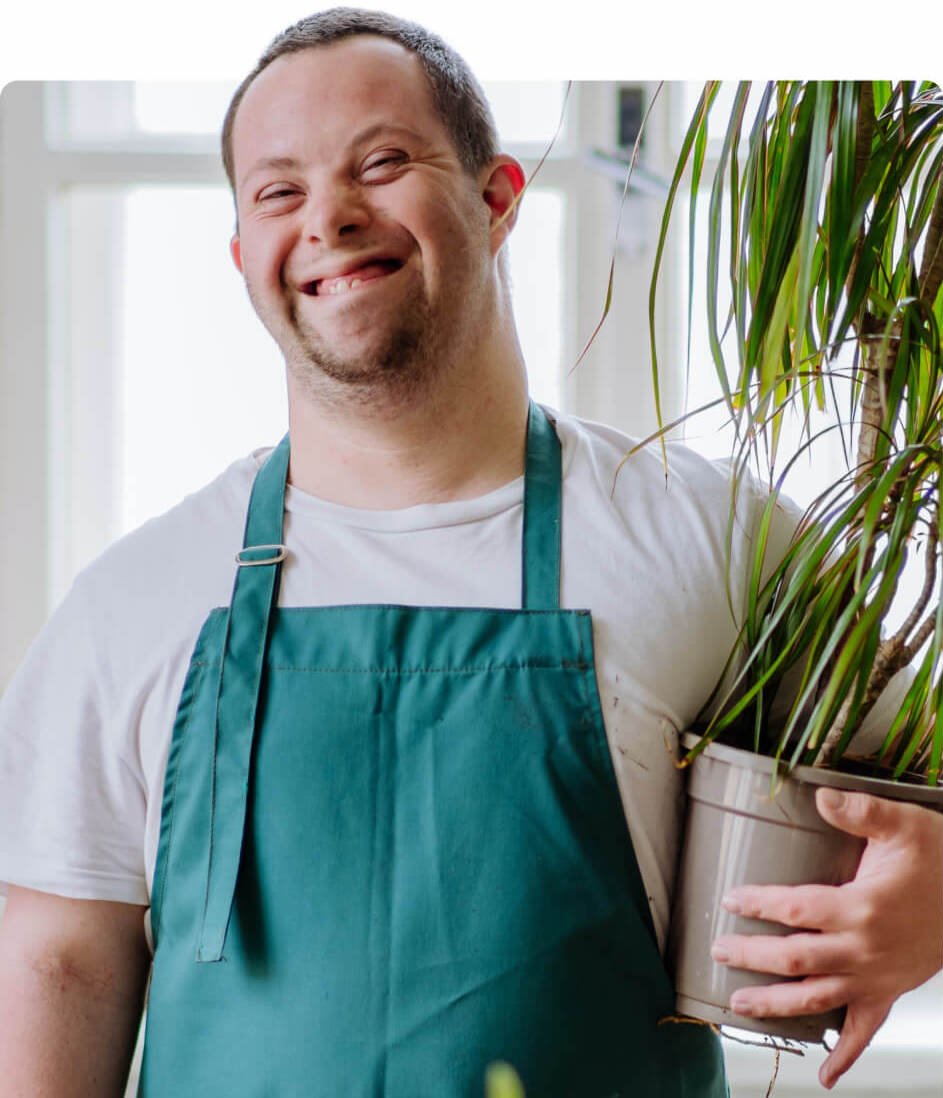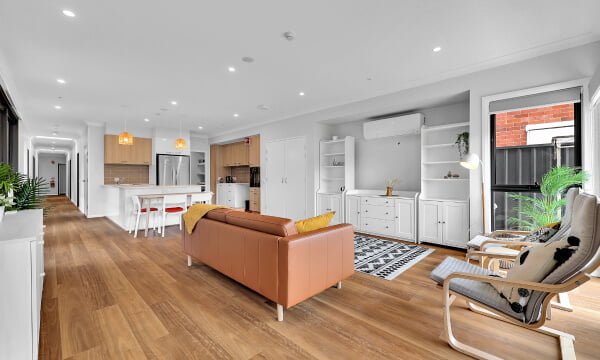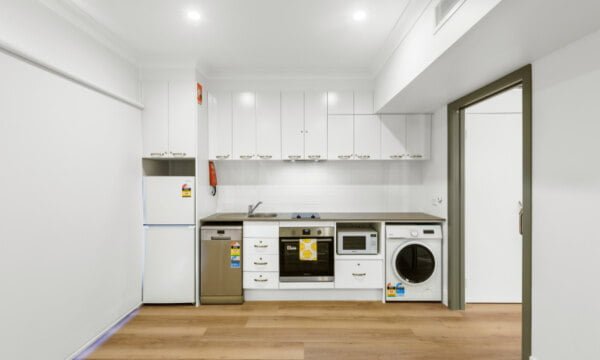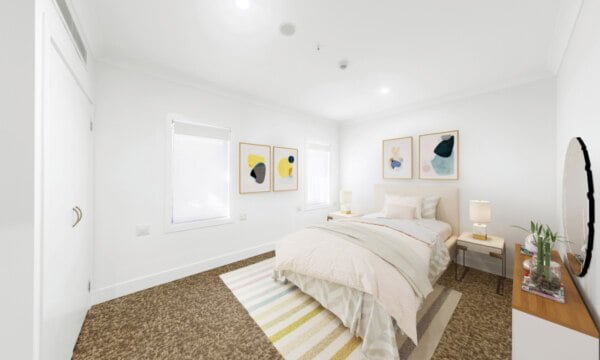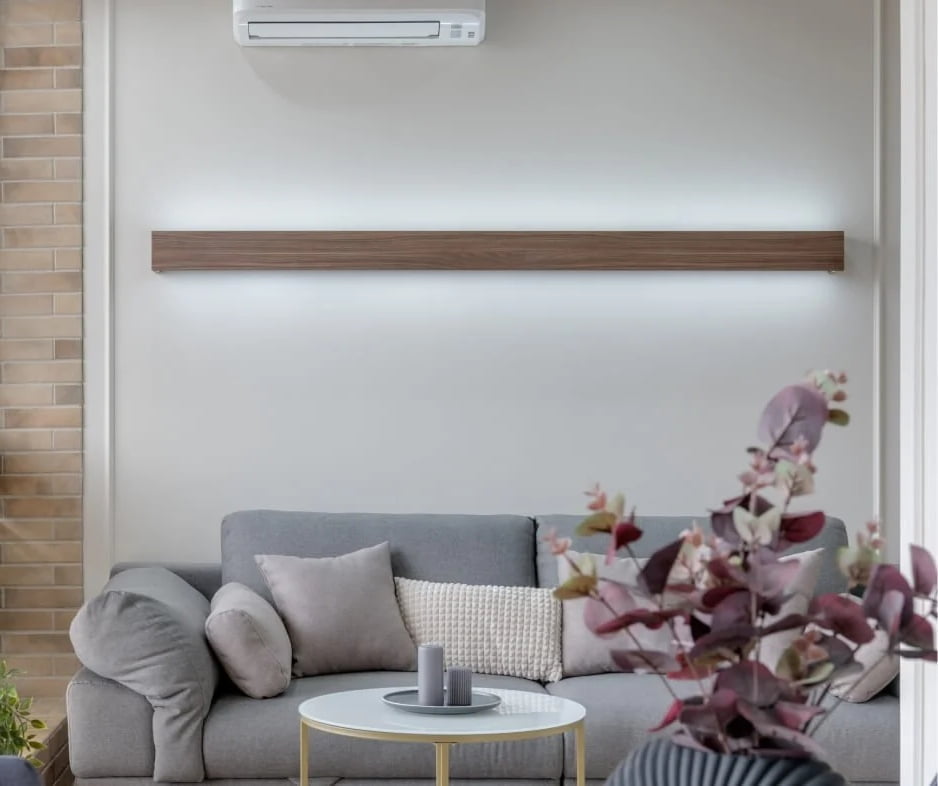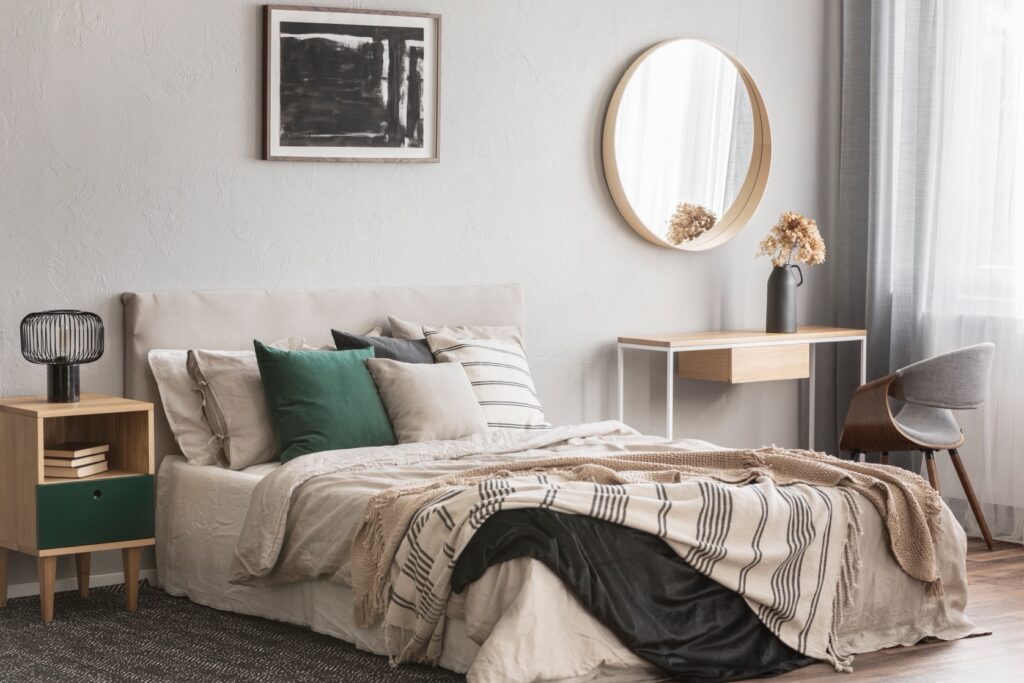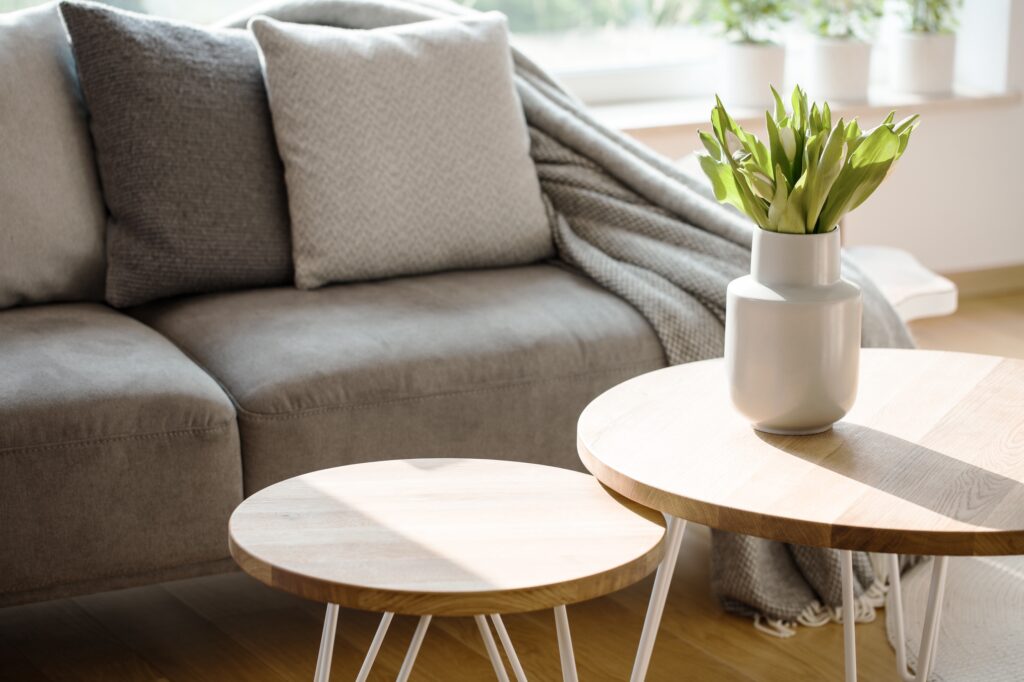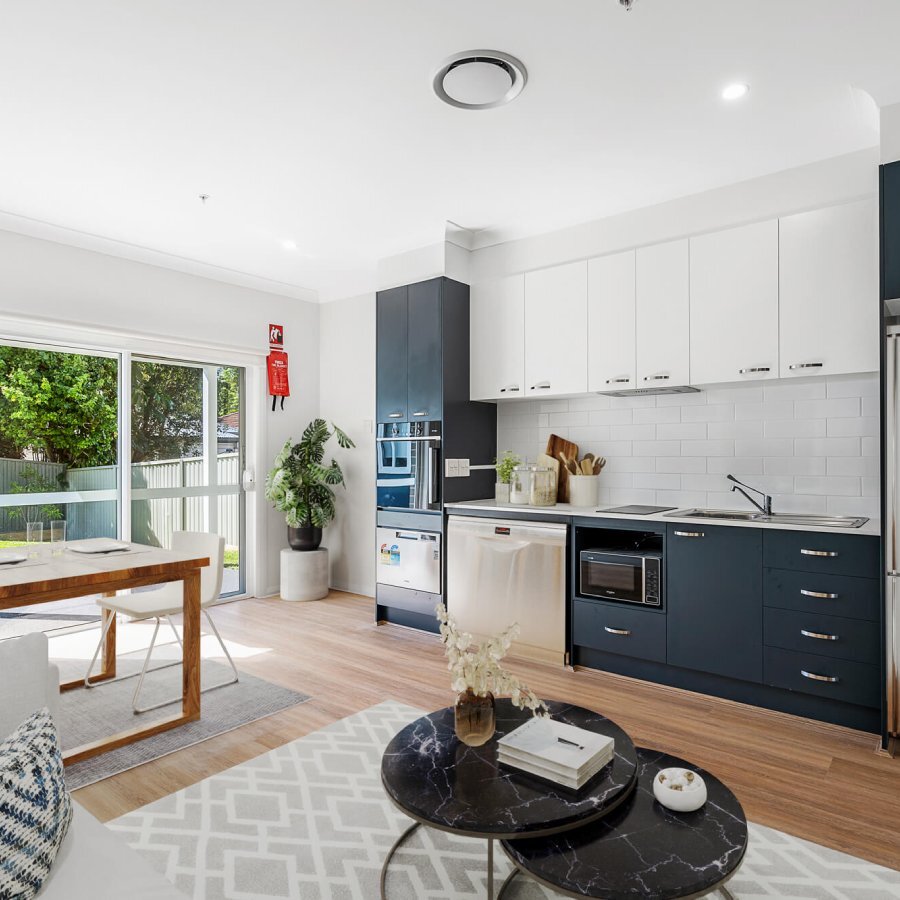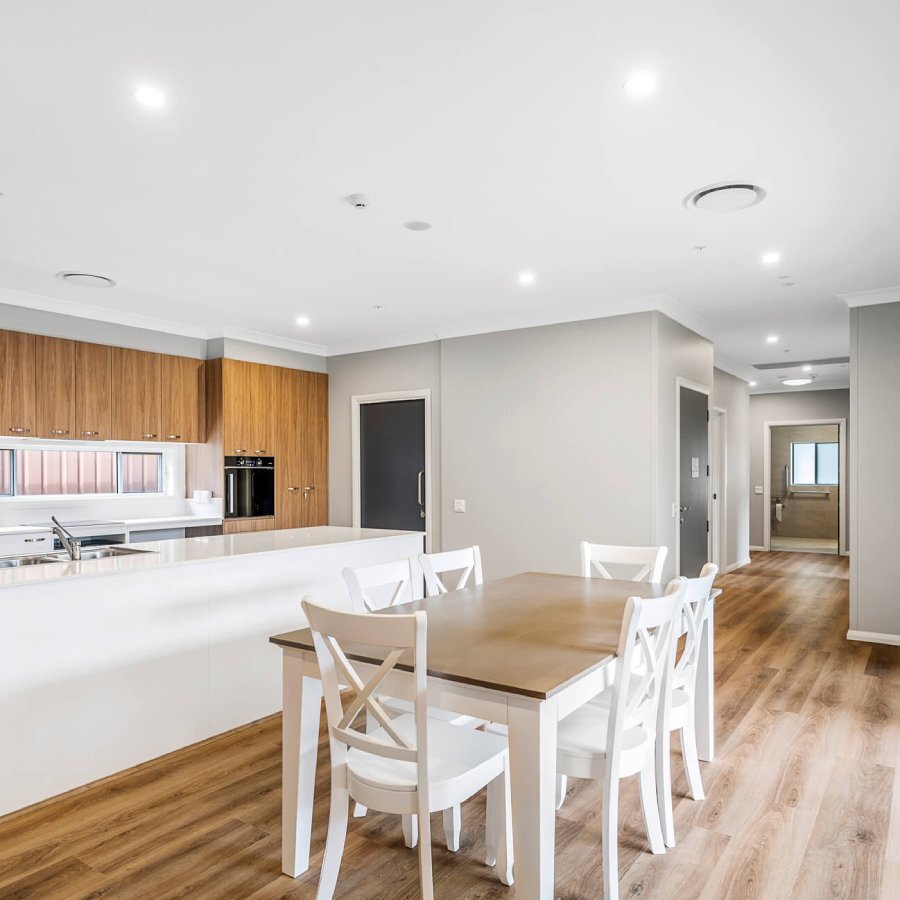Select a suburb or area that suits your needs
Find Home Where Your Heart Is!
Disability Housing
Edenbridge Living stands out as a pivotal provider of disability housing, recognised for its commitment to creating specialised homes for those with intellectual disabilities or cognitive impairments. As a registered NDIS disability housing provider, our expertise lies in developing comfortable, inclusive, custom-built homes in prime locations, including the inner and middle ring suburbs of Sydney and the Central Coast of NSW. Our mission is to ensure clients find a home and thrive within their communities while emphasising the importance of creating living spaces that support the unique needs of people with intellectual disabilities or cognitive impairments.
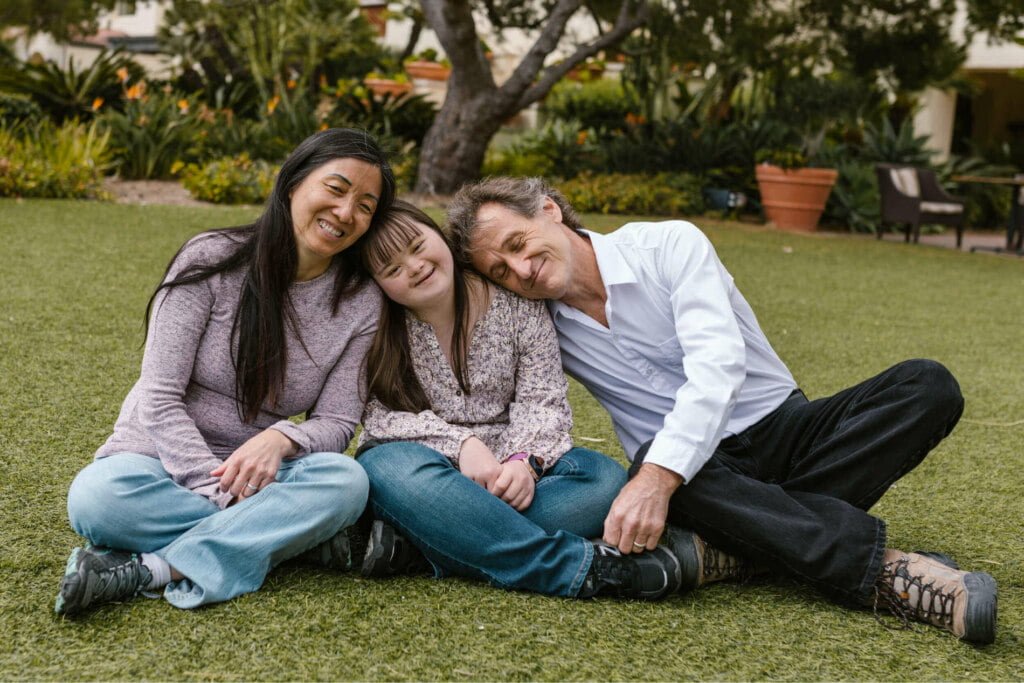
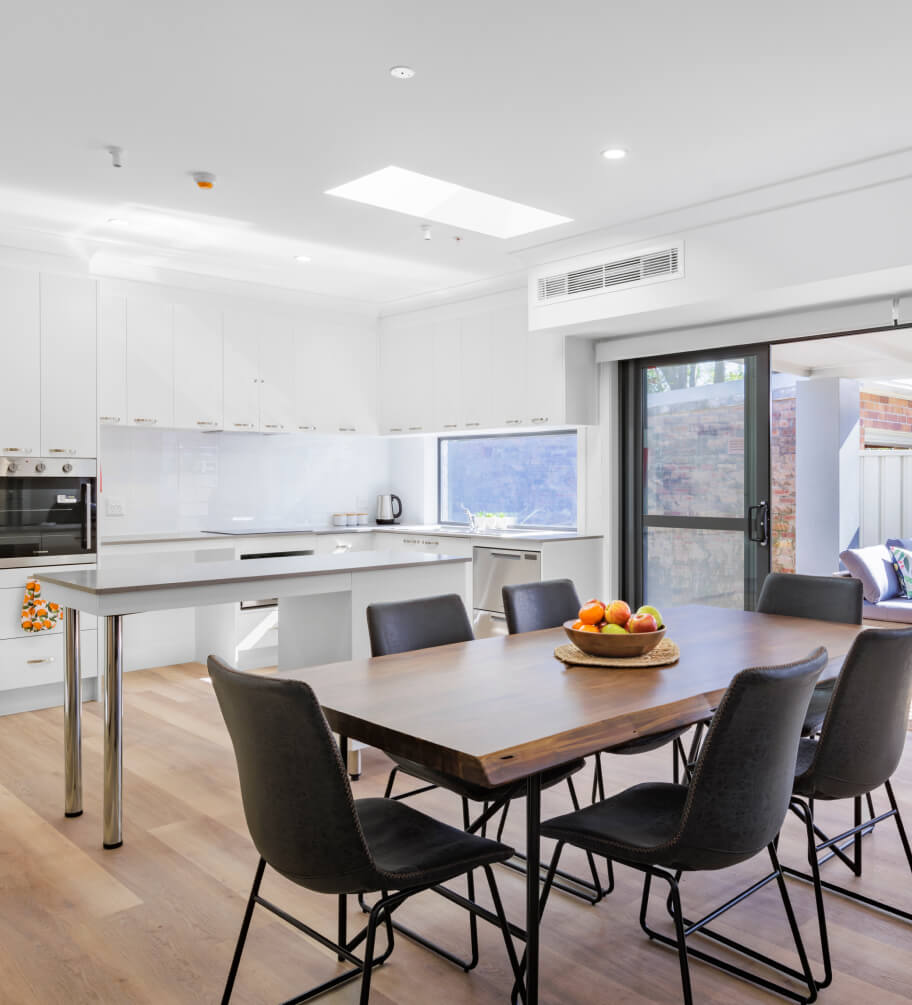
Edenbridge Living: Resident Focus
NDIS Participants We Serve
Edenbridge Living is committed to assisting and supporting NDIS participants with Intellectual Disabilities or cognitive impairments. Our goal is to create an inclusive and empowering environment that caters to the unique needs of each individual.
Why Choose Edenbridge Living ?
Simple Answer- Unwavering Dedication!
At Edenbridge Living, we believe everyone is entitled to a home that caters to their unique needs and enhances their overall quality of life. That's why we go above and beyond to provide disability housing that is comfortable, inclusive, and empowering for NDIS participants.
Explore Homes NearbyDisability Housing Design
Disability housing, categorised into four design standards according to SDA rules, caters to specific needs and support levels required by residents with disabilities.
Accessibility Features &
Adaptations
Disability housing is designed with various accessibility features and adaptations to meet the diverse needs of individuals with disabilities. These modifications aim to enhance independence, safety, and comfort. Here are some common features to look for:
These features are vital for ensuring that homes are safe, accessible, and conducive to the independence of individuals with disabilities.
Explore Homes Nearby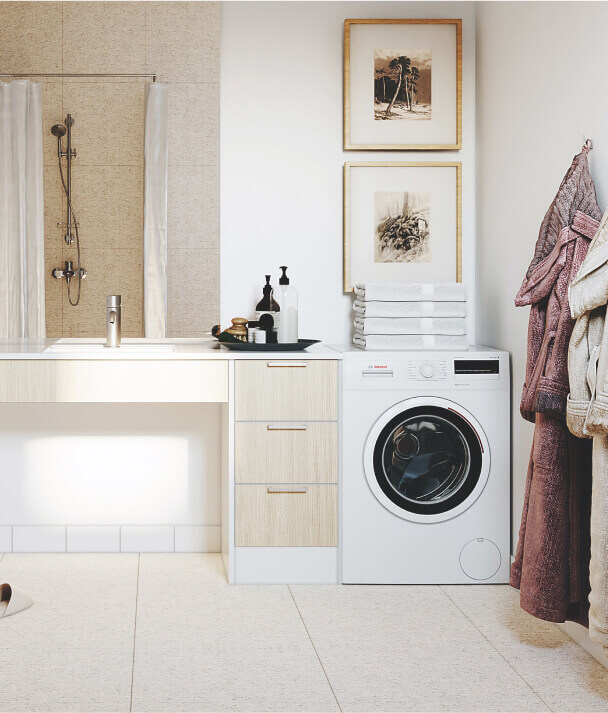
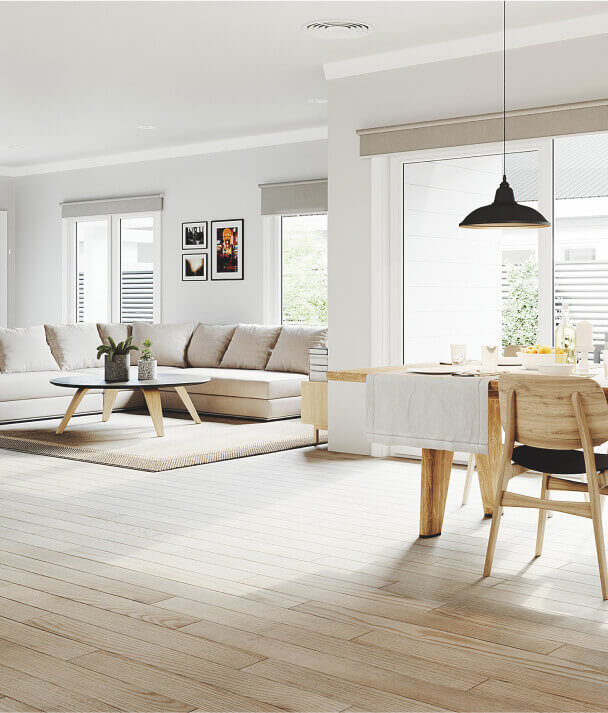
Disability Housing
Factors To Consider
When selecting a disability housing option, there are several factors that one should consider, such as:
Eligibility Criteria For
Disability Housing
Eligibility criteria for disability housing include:
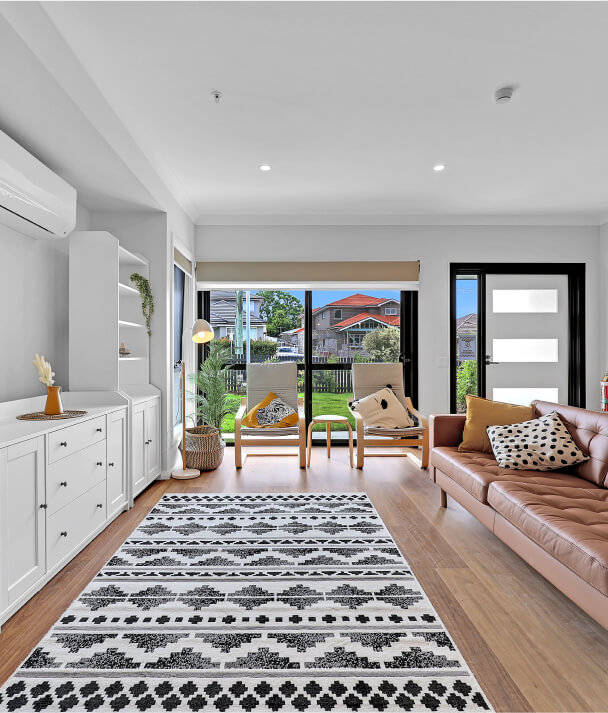
How to apply for Disability Housing
Applying for disability housing involves a series of steps.
01Understand Your Eligibility |
|
02Gather Documentation |
|
03Plan Meeting |
|
04Include Disability Housing Requirement In Your NDIS Plan |
|
05Seek Provider Options |
|
06Application to Providers |
|
07Assessment and Approval |
|
08Agreement Signing |
|
09Move-in Preparation |
|
10Seek Support if Needed |
|
Find Disability Housing in Your Preferred Location
Explore our disability homes in your select suburbs, tailored for diverse needs
Our NDIS Disability Housing Options
We understand a home is more than just bricks and mortar; it's a feeling. With every project, our goal is to ensure your loved ones are not just housed, but truly at home.
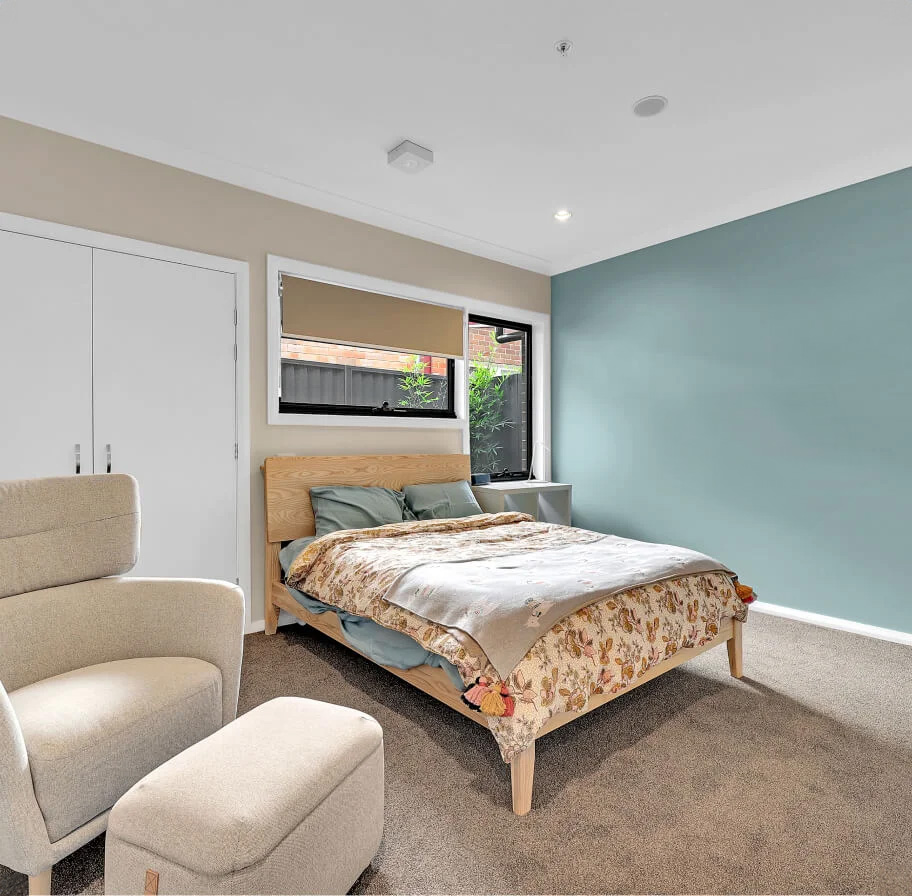
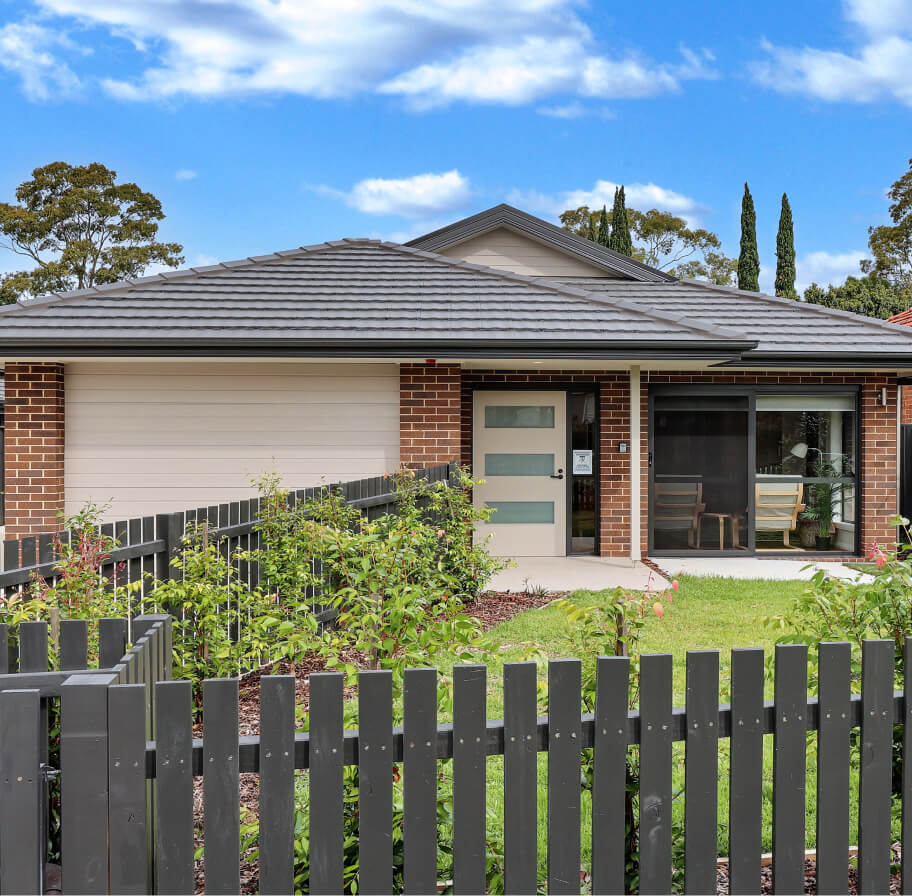
Our Collaborations Make A Difference
We're proud to collaborate with leading organisations that share our vision of inclusivity and empowerment. If you have had a great experience with another particular support provider, please reach out to us to discuss how we may be able to collaborate. Together, we create a tapestry of support, enriching the lives of our residents.
Sunnyfield is a for-purpose organisation built on a heritage of community spirit, trust, inclusion and heart. Work, life or leisure, we support children, youth and adults with disability to build independence in every opportunity, find a place to call home, connect with their community and build skills for life.
Let’s work together to make bright futures for people with disability.

JewishCare NSW has been helping our community thrive since 1937. Our specialist teams provide community aged care, mental health, disability, and family and child services to ensure an inclusive and supported community.
We have subject matter experts in ageing, specifically in, home care packages and dementia, suicide prevention, domestic violence, NDIS and employment. We work with individuals, the Government, referrers, families and the community to build resilience for today and tomorrow.
Trusted Home Care are an established and sought after provider of in-home care services for the aged and disabled communities, on the NSW Central Coast and Northern Beaches of Sydney.
As a Registered NDIS Provider we offer a full suite of standard and complex support needs, accommodation options and coordination of supports. Our personable team strive to meet individual needs.
As one of Australia’s leading disability service providers, Aruma is dedicated to empowering the people we support to live life on their terms.
We support people to realise their goals and dreams – whether it’s moving out of home, finding a job they love, or becoming active members of the community.
For us, there’s nothing more satisfying than discovering where someone wants to go and supporting them in getting there.

Voices From The Community
Frequently Asked Questions
What are the different types of disability housing?
Various disability housing options are available to cater to varying needs and preferences. They are:
- Group Homes: Shared housing for individuals with disabilities, providing 24/7 support services.
- Independent Living Units: Self-contained apartments with optional support for those who can live independently but may need occasional assistance.
- Assisted Living Facilities: Residential settings offering personal care and support services designed for those who require more daily assistance.
- Specialist Disability Accommodation (SDA): High-quality housing solution for people with significant functional impairment or high support needs under the NDIS framework.
- Community Housing: Subsidised, accessible housing for low-income individuals with disabilities managed by non-profit organisations.
What are the four SDA design categories?
There are four distinct SDA design categories: Improved Liveability, Fully Accessible, High Physical Support, and Robust.
Can I choose where I live?
Having checked the disability housing enrolments and vacancies and within the availability of suitable disability housing properties, you can choose your accommodation based on location, type, and provider.
Can I move to another disability home?
Yes, you can move to another disability home if your needs change or if you find a more suitable option. However, this requires a reassessment of your eligibility and needs.
What kind of support can I expect in disability housing?
Support varies by accommodation but can include on-site care, access to therapy services, community activities, and assistive technologies.
Who is eligible for disability housing?
To be eligible for disability housing, an individual typically aged between 18 and 65 has extreme functional impairment or very high support needs and is approved for SDA funding in their NDIS plan.
How long does the application process take?
The timeline can vary depending on individual circumstances, including the availability of suitable accommodations and the completeness of your application.
What if my disability housing application is denied?
You can request a review of the decision through the NDIS. It’s also beneficial to consult with your NDIS planner or a local area coordinator for further guidance and to explore alternative solutions.
What costs are involved with disability housing?
SDA funding for disability housing covers the cost of the physical environment for eligible NDIS participants. SDA funding does not cover personal daily living costs like groceries and internet.
What is 'Supported Independent Living' (SIL)?
Supported Independent Living (SIL) is a range of services provided to people with disabilities to support them in living as independently as possible. This typically includes assistance with daily tasks, personal care, and developing skills to participate in the community, tailored to the individual’s needs and goals. SIL aims to empower individuals by enhancing their ability to perform everyday activities within their own homes and communities.
What do you mean by 'Individualised Living Options'?
‘Individualised Living Options’ (ILO) in Australia are personalised living arrangements for people with disabilities. These options focus on creating solutions that match the individual’s needs, preferences, and goals rather than fitting them into preexisting housing models. ILOs can vary greatly, encompassing arrangements like living alone with support, co-residency where a person shares their home with a support worker, host arrangements in another family’s home, or living with chosen housemates with support structures tailored to their needs.
Are there any cost-effective housing options available for the disabled?
Cost-effective housing options for disabled individuals often include subsidised public housing, shared accommodations in boarding houses specifically adapted for accessibility, and private rentals with financial assistance through government programs or non-profit organisations. These options aim to provide affordable, accessible living spaces that meet the needs of individuals with disabilities, ensuring they have the support and facilities necessary for a comfortable living environment.
How can Rental Assistance and Bond Loan Assistance help the disabled?
Rental Assistance and Bond Loan Assistance can significantly help disabled individuals in several ways:
- Reduced Financial Burden: These programs help lower renting costs, making it more affordable for disabled individuals who might be on a limited income due to their inability to work full-time.
- Access to Suitable Accommodation: With financial assistance, disabled individuals can afford to live in accommodations designed or modified for their needs, improving their quality of life.
- Security Deposit Support: Bond Loan Assistance provides the upfront costs often required for rental properties, such as security deposits, which can be a significant barrier for many individuals looking to rent.
- Stability and Independence: By assisting with the financial aspects of housing, these programs enable disabled individuals to live independently in a stable environment, which is crucial for their overall well-being.
- Flexibility in Housing Options: Financial assistance can broaden the range of housing options available to disabled individuals, allowing them to choose homes in suitable locations closer to essential services or support networks.
- Encouragement of Social Inclusion: Living in a stable, suitable environment can help disabled individuals participate more fully in community life, enhancing their social inclusion and mental health.
These programs are designed to ensure that disabled individuals can live in safe, comfortable, and affordable housing, addressing one of the most fundamental aspects of their well-being.
Have more questions? Contact Us.
Redefining Living For Those Who Matter Most
At Edenbridge Living, we go the extra mile to ensure each of our disability homes have the following attributes:
